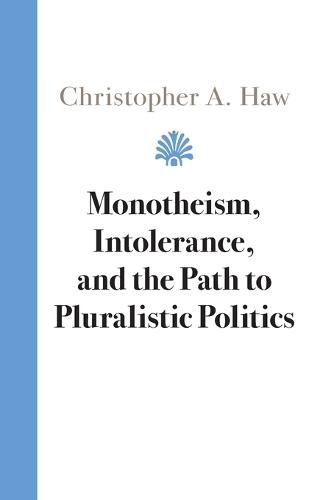Readings Newsletter
Become a Readings Member to make your shopping experience even easier.
Sign in or sign up for free!
You’re not far away from qualifying for FREE standard shipping within Australia
You’ve qualified for FREE standard shipping within Australia
The cart is loading…






Discussions of monotheism often consider its bigotry toward other gods as a source of conflict, or emphasize its universality as a source of peaceful tolerance. Both approaches, however, ignore the combined danger and liberation in monotheism’s ‘intolerance.’ In this volume, Christopher Haw reframes this important argument. He demonstrates the value of rejecting paradigms of inclusivity in favor of an agonistic pluralism and intolerance of absolutism. Haw proposes a model that retains liberal, pluralistic principles while acknowledging their limitations, and he relates them to theologies latent in political ideas. His volume offers a nuanced, evolutionary, and historical understanding of the biblical tradition’s emergence and its political consequences with respect to violence. It suggests how we can mediate impasses between liberal and conservative views in culture wars; between liberal inclusivity and conservative decisionism; and, on the religious front, between apologetics for exclusive monotheism and critiques of its intolerance.
$9.00 standard shipping within Australia
FREE standard shipping within Australia for orders over $100.00
Express & International shipping calculated at checkout
Discussions of monotheism often consider its bigotry toward other gods as a source of conflict, or emphasize its universality as a source of peaceful tolerance. Both approaches, however, ignore the combined danger and liberation in monotheism’s ‘intolerance.’ In this volume, Christopher Haw reframes this important argument. He demonstrates the value of rejecting paradigms of inclusivity in favor of an agonistic pluralism and intolerance of absolutism. Haw proposes a model that retains liberal, pluralistic principles while acknowledging their limitations, and he relates them to theologies latent in political ideas. His volume offers a nuanced, evolutionary, and historical understanding of the biblical tradition’s emergence and its political consequences with respect to violence. It suggests how we can mediate impasses between liberal and conservative views in culture wars; between liberal inclusivity and conservative decisionism; and, on the religious front, between apologetics for exclusive monotheism and critiques of its intolerance.